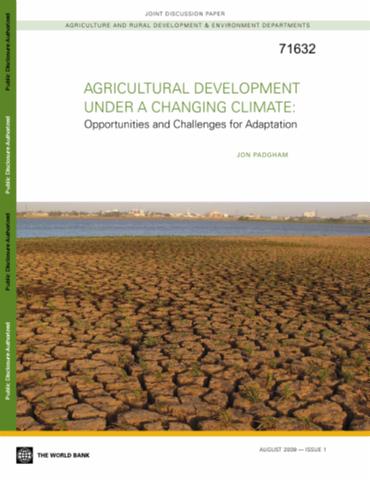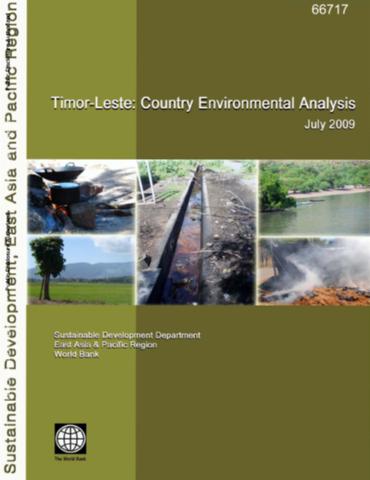Reconnaissance des droits des communautes la reforme de la tenure forestiere: potentialities et defis
Reconocimiento de los derechos comunitarios: El potencial y los retos de la reforma de la tenencia de los bosques
Summary and conclusions: REDD wine in old wineskins?
The impacts and opportunities of oil palm in Southeast Asia: What do we know and what do we need to know?
The ongoing expansion of oil palm plantations in the humid tropics, especially in Southeast Asia, is generating considerable concern and debate. Amid industry and environmental campaigners’ claims, it can be hard to perceive reality. Is oil palm a valuable route to sustainable development or a costly road to environmental ruin? Inevitably, any answer depends on many choices.
Cambio climático, acuerdos justos y vinculantes
Cambio climático, acuerdos justos y vinculantes
*Rodrigo López Sánchez
Agriculture Strategic Development Plan 2010-2012.
The Agriculture Strategic Development Plan is a national policy with a multi-sectoral approach. The Timeframe of this Plan is 3 years between 2010 and 2012.
Assessing the Protection of Forest-based Environmental Services in the Greater Mekong Subregion
This paper examines the drivers of deforestation and the loss of forest services, and the various mechanisms that exist to protect forests in the Greater Mekong Subregion (GMS). In most cases policy mechanisms play a greater role in forest protection than payment for environmental services (PES) which has yet to develop in the subregion.
People's Republic of China Forestry Outlook Study
Developments in China will have substantial impacts on forestry in the rest of the region.
Agricultural Development under a Changing Climate
Climate change presents a profound challenge to food security and development. Negative impacts from climate change are likely to be greatest in regions that are currently food insecure and may even be significant in those regions that have made large gains in reducing food insecurity over the past half-century.
Timor-Leste
The Country Environmental Analysis (CEA) for Timor-Leste identifies environmental priorities through a systematic review of environmental issues in natural resources management and environmental health in the context of the country's economic development and environmental institutions. Lack of data has been the main limitation in presenting a more rigorous analysis.
Estimativa de aporte de recursos para um sistema de Pagamento por Serviços Ambientais na floresta Amazônica brasileira
A importância das florestas para a conservação do planeta e para o bem estar das gerações futuras é cada vez mais reconhecida pela enormidade de bens e serviços prestados à humanidade: elas contribuem para o equilíbrio do clima e das águas, abrigam uma valiosa biodiversidade, além de representar alternativa socioeconômica às populações que nelas vivem e de suprir a demanda da soc






